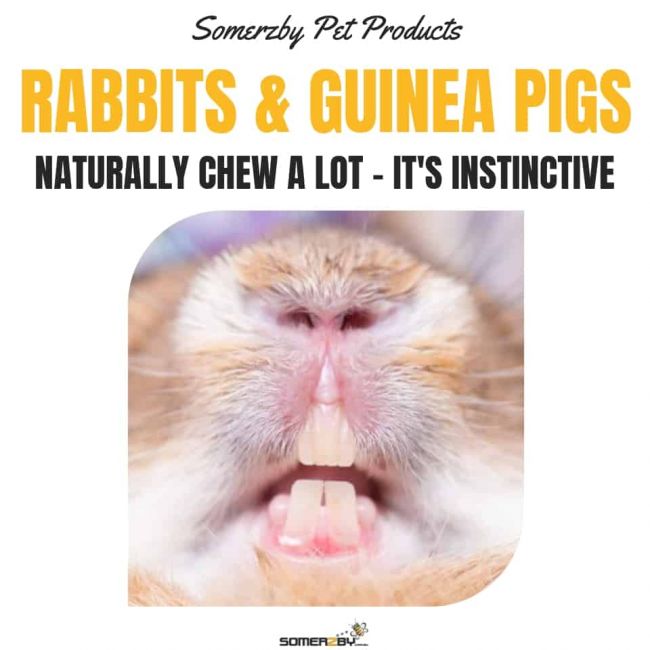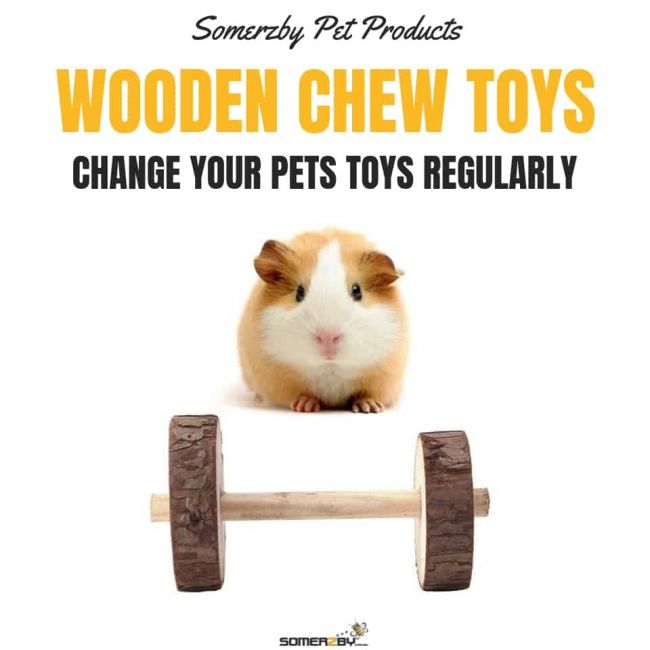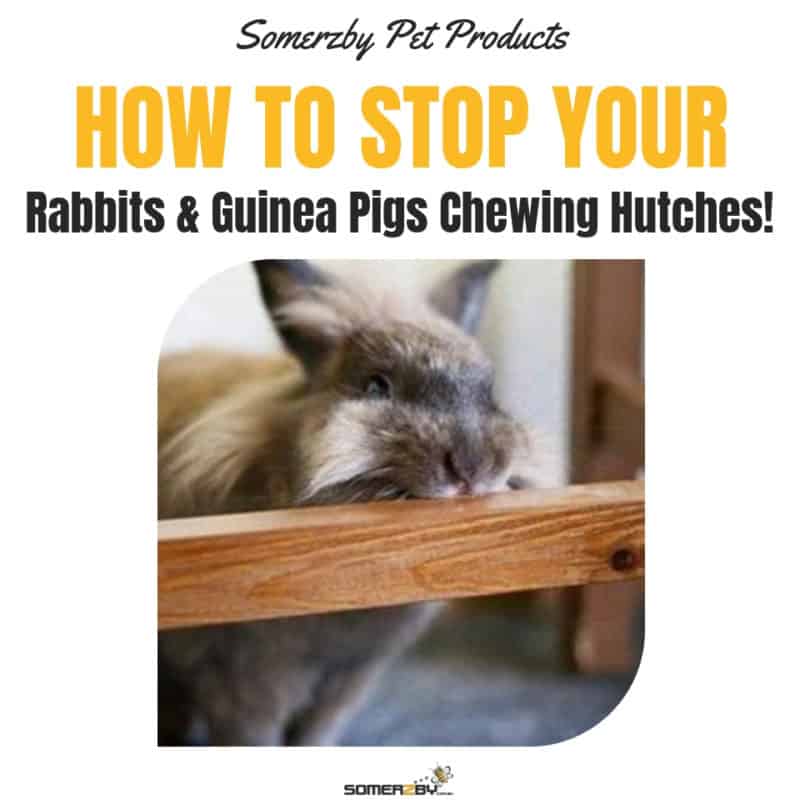Guinea Pigs, Rabbits
How to Stop Rabbits & Guinea Pigs Chewing Hutches
How to Stop Rabbits & Guinea Pigs Chewing Hutches
It is natural for both rabbits and guinea pigs to chew. Their teeth continue to grow throughout their lives so they must chew almost constantly to keep them worn down to a healthy length.
If their teeth grow too long, they can become sharp and cause painful ulcers on their cheeks and tongue.
Why is My Rabbit or Guinea Pig Chewing its Hutch?
Rabbits and guinea pigs can chew their hutch excessively if they are feeling bored or frustrated. This can be caused by not having regular interaction with other pets or people.
It can also be caused by being in their hutch 24/7 and not having time outside or floor time to exercise.
Baby rabbits and guinea pigs are more likely to chew their enclosure and will often grow out of the habit. Females generally chew more than males. Non-desexed rabbits and guinea pigs chew more than those that are desexed.
Should I be Worried about my pets chewing?
Somerzby hutches are made from Chinese Fir wood and coated in non-toxic water-based stain. Our wood is not treated so it is safe for your pets to chew on.
If your hutch is made from safe wood, there is no harm in your pet making small nibbles around your hutch here and there. However, it is not preferable if you want the hutch to last a long time and they are causing significant destruction.
Regularly check the area your pet is chewing to ensure they are not causing any structural damage or chewing their way to freedom.
Also check they have not chewed any wood to very sharp edges or are at risk of being injured by splinters. If yes, sand back the wood and repair immediately.
The longer you allow your pet to chew its hutch, the harder it is to get them to stop and the more damage that is done to the hutch itself.

How to Stop a Rabbit or Guinea Pig Chewing its Hutch?
Remember that rabbits and guinea pigs naturally chew a lot. It is instinctive. They don’t know it is wrong to chew their hutch. Always be patient with your pet.
Provide Other Things to Chew
Provide your pet with a constant supply of grass hay to chew on. Rabbits and guinea pigs can eat their body weight in hay each day! If your pet isn’t eating the hay you have provided, try a new type. Timothy and oaten hay are nutritious options that most pets will love the taste of.
Provide other wood to chew on. Wooden chews toys can be purchased at most pet stores. You can also try willow stick bridges or apple wood. Try new things and change toys regularly as your pet can become uninterested and go back to chewing its hutch.
Entertain your Rabbit or Guinea Pig
If you believe your pet is chewing because of boredom, commit more time to playing with it each day. Just 30 minutes extra playtime can make a huge difference.
Try letting your rabbit or guinea pig outside of its cage to exercise. The Somerzby Arena Playpen is a great way to allow your pet to play with you in your yard whilst still being enclosed.
Provide toys inside your hutch. These don’t have to be expensive! Try stuffing a toilet roll with hay or other treats to give your pet a challenge getting the food out.
Cut large holes into cardboard boxes for your pet to run through. Always check your pet isn’t eating anything harmful including tape from boxes or plastic.
You can also hide treats around their hutch so they have to search for their food.

Preventing Chewing
If your pet is chewing the hutch in specific areas, you can create a barrier to stop them. Nail or cable tie down extra slats of wood (or sheets of metal) over the chewed area.
Anti-chew sprays are available. Regularly spray onto the affected area. This will make it taste bitter and deter your pet. Never spray the whole hutch as this can make your pet uncomfortable. These sprays have a reported low success rate in helping to stop chewing.
You can also try training your rabbit or guinea pig. Always use positive reinforcement by offering rewards and cuddles to praise it when it isn’t chewing.
Never use negative reinforcement (such as yelling or making loud noises) – this is more likely to scare your pet and make it associate the bad reaction with you, rather than with the chewing itself.
In extreme cases, chewing can be an indication of medical issues. This is rare. However, if there is no improvement and your pet is causing issues, visit your local vet for advice.
Sources
- https://www.rabbit-hutches.co.uk/stop-rabbits-chewing.htm
- https://www.thebunnyhutch.org/blog/how-to-stop-rabbits-from-chewing/
- https://animals.mom.me/mean-guinea-pigs-chew-cage-9766.html





How can I stop my chooks pecking at the wood doors and frames of their enclosure, they have created massive holes on inside and outside of doors and sides of the frames.